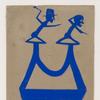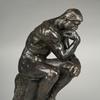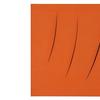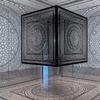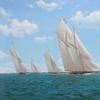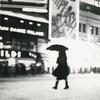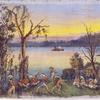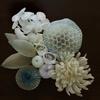'Endless Summer' Exhibition of 60s California Art Opens at MCA Chicago
- CHICAGO, Illinois
- /
- January 28, 2018
This winter, the Museum of Contemporary Art Chicago opens Endless Summer featuring works of art influenced by the culture and climate of Southern California in the 1960s, from the surf industry to custom car culture, characterized by slick surfaces and dreamy, atmospheric colors. Taking its title from the classic Bruce Brown surf movie Endless Summer from 1966, this exhibition celebrates the Minimalist movement on the West Coast which embraced new materials such as fiberglass, plastic, and resin, and reveled in perception rather than objective facts. Drawn primarily from the MCA Collection, the show offers a snapshot of Minimalist and Light and Space works by well-known artists such as Larry Bell, Judy Chicago, Robert Irwin, John McCracken, and Ed Ruscha. Endless Summer is on view from January 27 to August 5 and is organized by MCA Chief Curator Michael Darling.
A highlight of the exhibition is Ed Ruscha's set of six screenprints that plays on British words - News, Mews, Pews, Brews, Stews, and Dues. The wordplay would have appeared in stark contrast to the seriousness of New York Minimalism at the time, in addition to Ruscha's use of organic materials, including raw eggs, pie filling, Bolognese sauce, caviar, mango chutney, and crushed daffodils and tulips, to achieve different gradations of color. Some of these colors have gotten lighter or darker over time -- an aging process influenced by chemical breakdown, light, and other environmental factors.
Other works on view include Judy Chicago's Pasadena Lifesaver Series #1, the first of her series of large canvases of colorful, lifesaver-like shapes. Her play with quilting patterns adds structure to otherwise soft spectrums of color, evoking both traditionally female domestic work and masculine, geometric lines. With this work, Chicago inserts sensuality and feminist identity into the famously male-dominated movement.
The exhibition also features the work of Peter Alexander, whose iconic, delicate wedges of translucent-colored resin taper off at their tops to blend with their surroundings; and Craig Kauffman, whose wild experimentation with vacuum-formed plastics and automotive paint produced works that merge painting and sculpture and allude to commercial signage and customized car designs. Likewise, Billy Al Bengston's The Alamo reveals a palette of bent metal, high sheen paints, and stencilled symbols from hot rod culture, pushing painting into a new direction.


